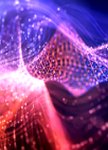版权所有:内蒙古大学图书馆 技术提供:维普资讯• 智图
内蒙古自治区呼和浩特市赛罕区大学西街235号 邮编: 010021

作者机构:UBTECH Sydney AI Centre School of Computer Science Faculty of Engineering University of Sydney Australia Hon Hai Quantum Computing Research Center No. 32 Jihu Road Neihu District Taipei 114 Taiwan Institute of Natural Sciences Shanghai Jiao Tong University Shanghai 200240 China Ministry of Education Key Laboratory in Scientific and Engineering Computing Shanghai Jiao Tong University Shanghai 200240 China University of Michigan-Shanghai Jiao Tong University Joint Institute Shanghai 200240 China
出 版 物:《Physical Review Research》 (Phys. Rev. Res.)
年 卷 期:2021年第3卷第2期
页 面:023153-023153页
核心收录:
基 金:N.L. is grateful to Barry Sanders (University of Calgary) Ryan LaRose (Michigan State University) Dong-Ling Deng (Tsinghua University) Jeongho Bang (Korea Institute for Advanced Study) and Srinivasan Arunachalam (IBM Research) for very interesting and fruitful discussions. N.L. also thanks Dong-Ling Deng for giving useful feedback on this paper during her stay in Tsinghua University. N.L. acknowledges funding from the Shanghai Pujiang Talent Grant No. 20PJ1408400 and the NSFC International Young Scientists Project No. 12050410230. N.L. is also supported by the Innovation Program of the Shanghai Municipal Education Commission No. 2021-01-07-00-02-E00087
主 题:Machine learning Quantum algorithms Quantum information processing Quantum protocols
摘 要:Noise in quantum information processing is often viewed as a disruptive and difficult-to-avoid feature, especially in near-term quantum technologies. However, noise has often played beneficial roles, from enhancing weak signals in stochastic resonance to protecting the privacy of data in differential privacy. It is then natural to ask: Can we harness the power of quantum noise that is beneficial to quantum computing? An important current direction for quantum computing is its application to machine learning, such as classification problems. One outstanding problem in machine learning for classification is its sensitivity to adversarial examples. These are small, undetectable perturbations from the original data where the perturbed data is completely misclassified in otherwise extremely accurate classifiers. They can also be considered as worst-case perturbations by unknown noise sources. We show that by taking advantage of depolarization noise in quantum circuits for classification, a robustness bound against adversaries can be derived where the robustness improves with increasing noise. This robustness property is intimately connected with an important security concept called differential privacy, which can be extended to quantum differential privacy. For the protection of quantum data, this quantum protocol can be used against the most general adversaries. Furthermore, we show how the robustness in the classical case can be sensitive to the details of the classification model, but in the quantum case the details of the classification model are absent, thus also providing a potential quantum advantage for classical data. This opens the opportunity to explore other ways in which quantum noise can be used in our favor, as well as identifying other ways quantum algorithms can be helpful in a way which is distinct from quantum speedups.